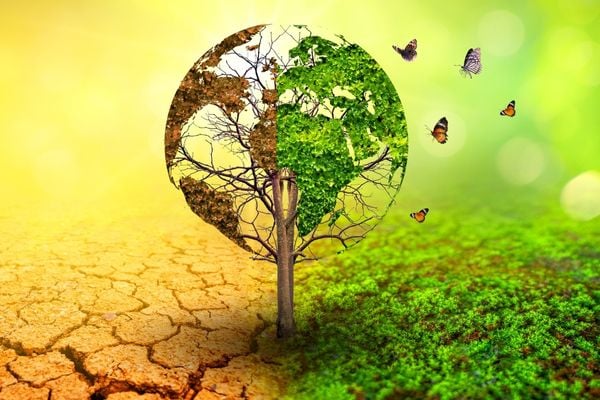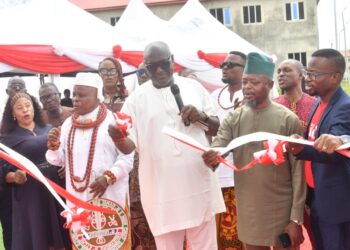Nigeria is standing at the frontline of a climate crisis that is no longer a distant warning but a lived reality. From the advancing desertification in the north to the rising sea levels threatening coastal cities, the nation’s vulnerabilities are as diverse as its geography. What is alarming is not only the breadth of these threats but the speed at which they are escalating, leaving the economy, infrastructure, and livelihoods increasingly exposed.
The evidence is stark. The National Emergency Management Agency (NEMA) reports that the 2022 floods, Nigeria’s worst in a decade, killed over 600 people, displaced more than 1.4 million, and destroyed hundreds of thousands of hectares of farmland. The World Bank estimates the economic losses from that single event at over ₦4 trillion. In the north, desertification is swallowing an estimated 351,000 hectares of arable land annually, shrinking agricultural productivity and fueling migration pressures. Meanwhile, in the Niger Delta, sea level rise and coastal erosion are threatening entire communities, with satellite imagery showing land loss at alarming rates.
These environmental shocks do not occur in isolation; they strike at the heart of Nigeria’s economy. Agriculture, which employs over a third of the workforce, is highly climate-sensitive. Extreme weather patterns disrupt planting seasons, reduce yields, and push food prices higher. Energy supply is not spared either; hydropower generation falters during prolonged dry spells, worsening electricity shortages and dampening industrial output.
Yet Nigeria’s climate preparedness remains dangerously inadequate. While the country has developed frameworks like the National Climate Change Policy and the Energy Transition Plan, implementation is slow, financing is weak, and institutional coordination is often fragmented. The nation’s reliance on crude oil exports compounds its vulnerability, as the global transition to low-carbon energy threatens to undercut its primary revenue source.
The way forward demands urgency and foresight. Climate change is not simply an environmental issue; it is a macroeconomic and national security threat. Nigeria must integrate climate risk assessments into all tiers of economic planning, from infrastructure investment to agricultural policy. Adaptation strategies such as climate-resilient farming, urban drainage systems, and coastal defenses must move from policy documents to active deployment.
Equally critical is unlocking climate finance. Public budgets alone cannot shoulder the burden; Nigeria must aggressively tap into global climate funds, green bonds, and public–private partnerships to scale adaptation and mitigation projects. Local communities, often the first to feel the brunt of climate impacts, should be empowered with early warning systems, climate-smart agricultural inputs, and access to micro-insurance.
Climate change will not wait for Nigeria’s bureaucracy to catch up. The question is no longer whether the impacts will come; they are already here. The real test lies in whether Nigeria will act now to protect its people, economy, and future, or wait until the cost of inaction becomes unbearable. In the race against climate change, hesitation is not a neutral choice; it is a decision to lose.





